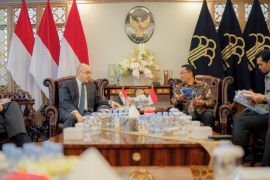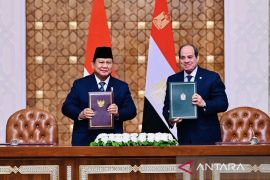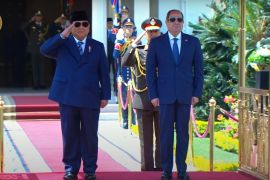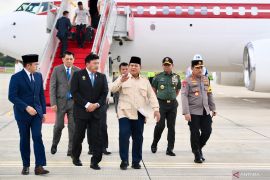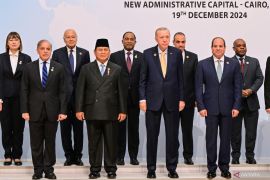"The Revolution in Egypt makes us realize that the civilian power which in the 30 years of Mubarak`s regime has been co-opted by military and political parties," he said here on Saturday.
Asked about whether President Husni Mubarak`s resignation would change the relations between Egypt, the US and Israel, Mu`ti said it depends on the upcoming presidential election in September.
Egyptian President Hosni Mubarak eventually resigned from his administration on Friday night (Feb 11), with the announcement of the Vice President Oman Sulaeman via national television.
The resignation of the first man in Egypt brings the people of the country to full joy following the 18-day protest demonstrations demanding Mubarak to step down since Tuesday (Jan 25).
Earlier the situation in Egypt was getting worse because groups of people who came together at Tahrir Square would hold bigger demonstrations to overturn Mubarak`s dictator regime. However, the horrifying situation was turned to uproar when Oman said that Mubarak decided to quit and gave the government to the Egyptian Supreme Council of Armed Forces.
"In the middle of difficult circumstance in this country, President Hosni Mubarak decided to leave his presidential position,? said Sulaeman through national television broadcast, Friday (Feb 11), as quoted from AP.
Beforehand, Mubarak kept his thought to not step down from the administration and delegated his leadership to VP Oman Sulaeman. Nevertheless, the Egyptian people rejected if the vice president took over the presidential position in Egypt and they would not allow Mubarak to finish the administration until the next election in September, 2011.
Meanwhile, Indonesian Ambassador to Egypt H.E. A.M. Fachir appraised the action of President Hosni Mubarak who had led the one of the most populous countries in North Africa and the Middle East since 1981.
"His resignation showed his nationalism which patiently accepted what his people want," said Fachir to ANTARA in Cairo, Friday (11/2).(*)
Editor: Ruslan Burhani
Copyright © ANTARA 2011




